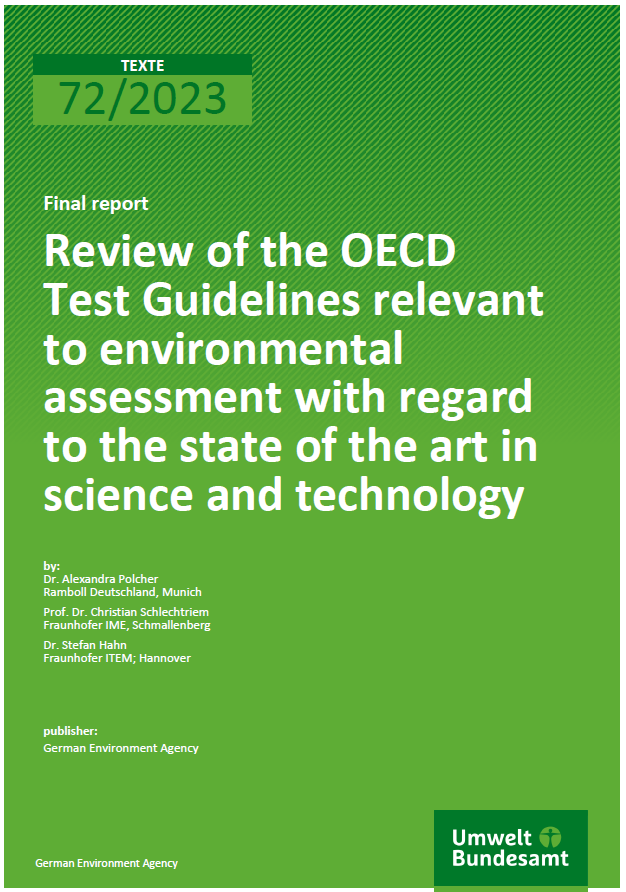The OECD Test Guidelines (TG) for Chemicals are a specific tool for assessing the potential effects of chemicals on human health and the environment. These internationally standardised TGs for the testing of chemicals are used by industry, academia and authorities in the testing and evaluation of chemicals (industrial chemicals, pesticides, biocides, pharmaceuticals, etc.).
As part of the OECD Test Guidelines Programme (TGP), the OECD TGs are developed and updated by the OECD Working Group of National Coordinators for the OECD Test Guidelines Programme (WNT). To ensure that the OECD TGs reflect the state of the art in science and technology and meet the regulatory requirements of member countries, the OECD TGs are to be continuously expanded and updated. As regular review of the OECD TGs is not a standard requirement, it is the responsibility of OECD member countries to identify, propose and implement the projects necessary to update the TGs. Therefore, the focus is often on guidelines in which member countries have a particular interest and for which sufficient resources are available to initiate a revision process. Test guidelines that may not be used as frequently or are of low interest tend to be neglected in this approach, although a revision may be necessary.
The aim of this project was to identify OECD TGs that are not state of the art. Only OECD TGs that refer to the effects of chemicals on biotic systems, to the behaviour and fate of chemicals in the environment or to their physicochemical properties when used for environmental risk assessment were considered. Based on a detailed questionnaire, a comprehensive survey was conducted to identify the needs for TG revisions.
Proposals for revising the TGs were evaluated in a second survey. Both surveys were open to all interested parties including industry, science, contract labs, NGOs and authorities. After completion of the surveys, the results were discussed in three thematic workshops. Recommendations for the revision of the OECD Test Guidelines were developed and prioritised, which were finally presented to the members of the WNT.
 Fraunhofer Institute for Toxicology and Experimental Medicine
Fraunhofer Institute for Toxicology and Experimental Medicine